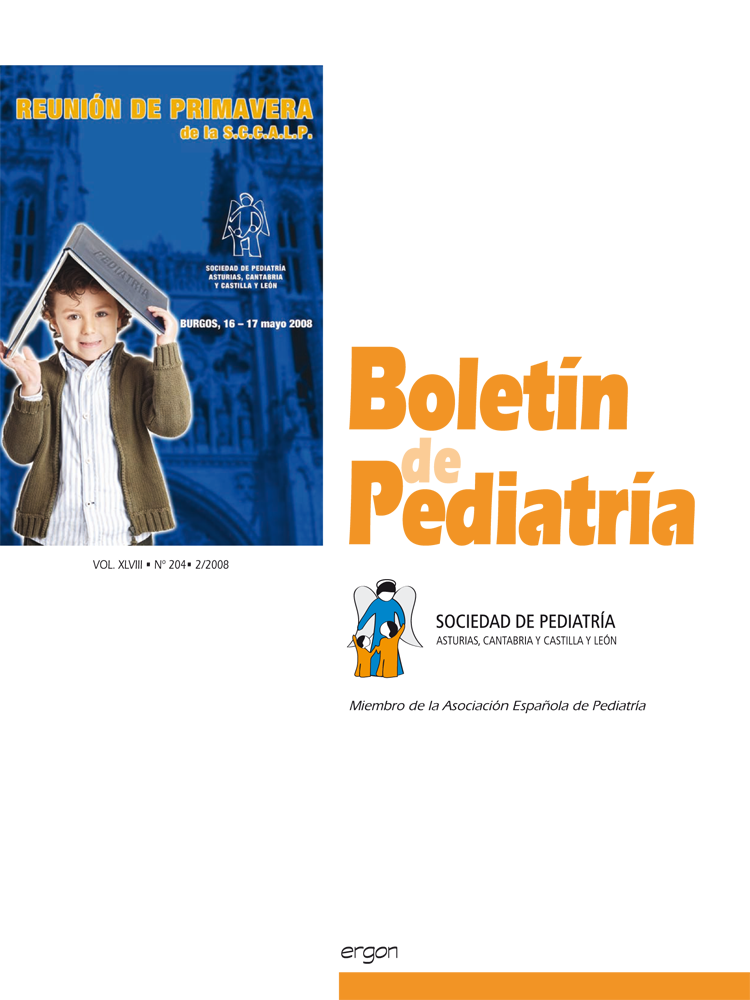Abstract
Background: International adoptation is increasing in our society.
Objetive: To know the characteristics of the health of these children and their evolution along the first two years of their lives in Spain.
Patients and methods: Observational study of a cohort of 40 children adopted internationally performed in a urban Primary Care Center in Palencia.
Results: 11 boys and 29 girls, aged 23.1 ± 26.5 months, who comed from Eastern Europe (45%), Asia (40%) and other countries (15%). Family diseases are known in 8 cases (20%). Personal diseases are known in 24 (60%). Mostly of the diagnostics did not were confirmed. Vaccination reports are known in 25 children (62.5%). Weight (-1 DS) and height (-0,3 DS) values at the beginning and one year later showed statistical signification (0 y 0.7 DS respectively). No differences were found comparing adopted children and a control group in acute infectious diseases in the first two years. Regarding chronic diseases it was found statistical signification for behavior disorders in the adopted children (p = 0.007).
Conclusion: Health in the group of children adopted internationally and their evolution is better than expected for the available information at their arrival, but they must be monitored because their are considered to be a population of risk.

This work is licensed under a Creative Commons Attribution-NonCommercial 4.0 International License.
Copyright (c) 2008 Boletín de Pediatría
